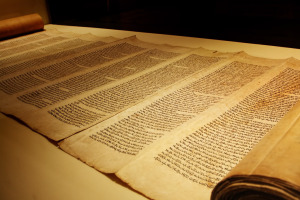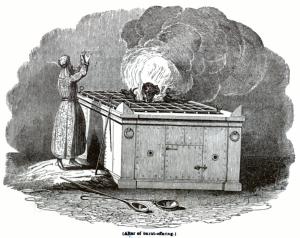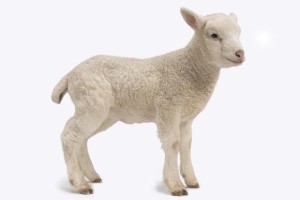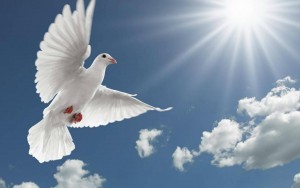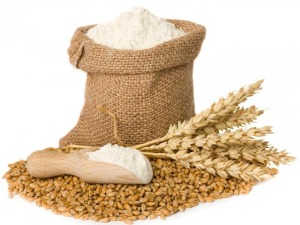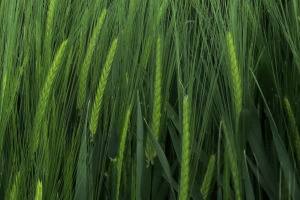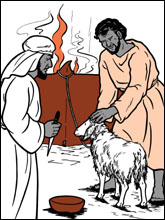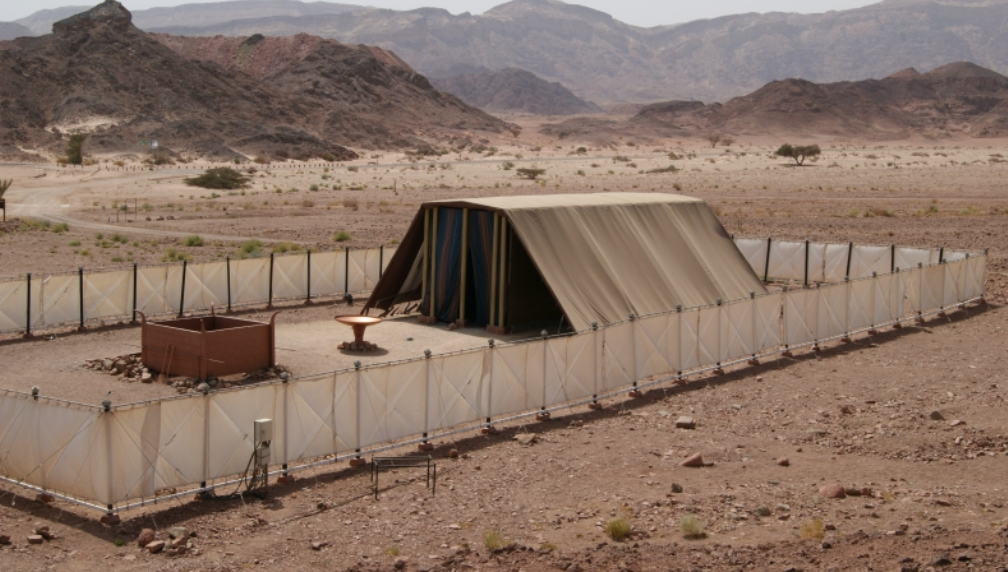ויקרא
Parshat Wayyiqra (Vayikra)
Leviticus 1:1-6:7
And YaHuWaH called to Mosheh, and spoke to him from the Tent of Meeting, saying… – Wayyiqra 1:1
This section of Torah is called ויקרא “Wayiqra” meaning “and he called.” The word קרא Qara, from which comes the phrase “Wayiqra”, means literally to proclaim, pronounce, announce, preach etc. ויקרא Wayiqra is the name of this entire book, which has been called “Leviticus”, which means “pertaining to the Levites.”
This Torah Portion begins with YaHuWaH speaking to Mosheh (Mushah) in the tent of meeting concerning the Korbanot, which are animal and meal offerings. The Korbanot were an essential aspect of the Mishkan (dwelling place). YaHuWaH led his people out of Mitsrayim (Egypt) with a mighty right hand, now the Eternal One himself is going to dwell in the midst of his chosen people. The key to bringing YaHuWaH’s presence in the midst of a people who are “stiff-necked” and who fall short of perfection is the “sacrificial system.” YaHuWaH requires “clean” animals for sacrifice; he specifies only oxen, sheep, goats, pigeons and doves are acceptable for offerings in the Mishkan.
HaOlah – “The ascending offering”
Ha Olah or the ascending offering is a freewill slaughter offering (nedabah). This offering was to be entirely burned with fire upon the altar of sacrifice. Like all offerings unto YaHuWaH the animal must be perfect without any type of defects. When the animal is sacrificed the blood is to be caught in a pan and the Kohen (priest) sprinkles the blood (zerikat hadam) on the altar If the animal is an oxen, sheep or goat semichah, which is the laying on of hands, and viduy, which is confession, must be done. . Then the animal is to be butchered into pieces, salted and burned completely.
Wayyiqra (Levitivus) 1:3 ‘If his offering is a burnt offering of the herd, let him bring a male, a perfect one. Let him bring it at the door of the Tent of Meeting, for his acceptance before YaHuWaH.4 ‘And he shall lay his hand on the head of the burnt offering, and it shall be accept- ed on his behalf to make atonement for him.5 ‘And he shall slaughter the bull before YaHuWaH. And the sons of Aharon, the priests, shall bring the blood and sprinkle the blood all around on the altar which is at the door of the Tent of Meeting.6‘And he shall skin the burnt offering and cut it into its pieces.7 ‘And the sons of Aharon the priest shall put fire on the altar, and lay the wood in order on the fire.8‘And the sons of Aharon, the priests, shall arrange the pieces, with the head and the fat on the wood which is on the fire on the altar.9 ‘But its entrails and its legs he washes with water. And the priest shall burn all of it on the altar as a burnt offering, an offering made by fire, a sweet fragrance to YaHuWaH.
The process is the same if the offering is of the flock from the sheep or goats. The animal must be male and without defect.
14 ‘And if the burnt offering of his offering to YaHuWaH is of birds, then he shall bring his offering of turtledoves or young pigeons.15 ‘And the priest shall bring it to the altar, and shall wring off its head, and burn it on the altar, and its blood shall be drained out at the side of the altar.16‘And he shall remove its crop with its feathers and throw it beside the altar on the east side, into the place for ashes.17‘And he shall split it at its wings, but not sever it. And the priest shall burn it on the altar, on the wood that is on the fire. It is a burnt offering, an offering made by fire, a sweet fragrance to YaHuWaH.
HaMincha – “The meal offering”
HaMincha literally means “the gift” but refers to the meal offering which is a freewill gift (nedabah). This offering is of fine flour, offered with olive oil and frankincense. Those who cannot afford to bring an animal normally give this offering. A portion of this offering is to be salted and burned on the altar. After YaHuWaH receives his portion, the Kohanim (Priests) eat the remaining portion. This flour offering must be done quick enough that the dough will not rise.
There are five varieties of the freewill meal offerings:
1) the standard “meal offering” of fine flour
2) the “baked meal offering,” which were either loaves or
3) matzah (flat unleavened bread)
;4) the “pan-fried” meal offering
5) the deep-fried meal offering done in a pot.
Minchat bikkurim is “the gift of firstfruits” which is also called HaOmer. This specific offering happens the morrow after the weekly Shabbat which transpires during Passover and Unleavened Bread. This gift must be of the Abib (green sometimes yellowish tender heads that can be parched) barley, the first of the harvest for each year. In this minchah, the kernels are roasted by fire before they are ground into flour.
Meal offerings always accompanied animal sacrifice.
HaShelamim – “Shalom (peace) offering”
HaShelamim or the Shalom offering is a freewill offering (nedabah). The laying on of hands (semichah) is to be performed for this offering although confession is replaced with a verbal praise offering unto YaHuWaH. The blood of the animal is to be sprinkled on the Altar. The one who brings the offering is to eat of the meat however the kohanim (priests) would eat the breast and right thigh.
Wayyiqra (Leviticus) 3:1‘And if that which he presents is a peace offering, if he is bringing it of the herd, whether male or female, he brings a perfect one before YaHuWaH. 2 ‘And he shall lay his hand on the head of his offering, and slaughter it at the door of the Tent of Meeting. And the sons of Aharon, the priests, shall sprinkle the blood on the altar all around. 3‘And from the peace offering he shall bring an offering made by fire to YaHuWaH, the fat that covers the entrails and all the fat that is on the entrails,4and the two kidneys, and the fat that is on them by the loins, and the appendage on the liver which he removes with the kidneys.5‘And the sons of Aharon shall burn it on the altar upon the burnt offering, which is on the wood, which is on the fire, as an offering made by fire, a sweet fragrance to YaHuWaH.
If the shalom offering is a sheep, “the whole fat tail, up to the backbone” was included as a burnt offering.
Levitivus 2:16’and the priest shall burn them on the altar as food, an offering made by fire for a sweet fragrance. All the fat belongs to YaHuWaH. 17’an everlasting law throughout your generations in all your dwellings: you do not eat any fat or any blood.’ ”
HaChatat – “The sin offering”
HaChatat, which is the “sin offering”, is not optional but is chovah, meaning required. This offering is necessary to make atonement for individuals or the entire nation when they have accidentally broken the commands of YaHuWaH.
Wayyiqra (Leviticus) 4:1 And YaHuWaH spoke to Mushah, saying, “Speak to the children of Yisra’Ãl, saying, ‘When a being sins by mistake against any of the commands of YaHuWaH, which are not to be done, and shall do any of them…
Different offerings may be required depending on the position of the one who has transgressed.
Wayyiqra (Leviticus) 4:3‘If the anointed priest sins, bringing guilt on the people, then he shall bring to YaHuWaH for his sin which he has sinned a young bull, a perfect one, as a sin offering,
A similar offering is also brought in the case that the entire community commits a transgression as a result of an erroneous ruling by the Sanhedrin (High Court).
Wayyiqra (Leviticus) 4:13‘And if the entire congregation of Yashar’al strays by mistake, and the matter has been hidden from the eyes of the assembly, and they have done against any of the commands of YaHuWaH, which are not to be done, and shall be guilty,14 when the sin which they have sinned becomes known, then the assembly shall bring a young bull for the sin, and bring it before the Tent of Meeting15‘And the elders of the congregation shall lay their hands on the head of the bull before YaHuWaH, and the bull shall be slaughtered before YaHuWaH.
Both the High Priest’s sin offering and that of the congregation is to be a male bullock that is offered by the Kohen HaGadol (High Priest). The blood of the offering was sprinkled inside the Miqdash (Sanctuary) on the Golden Altar and opposite the Parochet or veil. Instead of eating the meat “the skin of the bullock, and all its flesh, with its head, its legs, its inwards and its dung, even the whole bullock shall he carry forth outside the camp to a clean place… and burn it on the wood with fire.”
When a nassi or leader commits an accidental transgression he brings an offering comparable to the standard sin offering, except that it must be a male goat instead of a bull.
Wayyiqra (Leviticus) 4:27 ‘And if any being of the people of the land sins by mistake by doing against any of the commands of YaHUWaH which are not to be done, and shall be guilty,28 or if his sin which he has sinned shall be made known to him, then he shall bring as his offering a female goat, a perfect one, for his sin which he has sinned.29 ‘And he shall lay his hand on the head of the sin offering, and slaughter the sin offering at the place of the burnt offering.30‘And the priest shall take some of its blood with his finger, and shall put it on the horns of the altar of burnt offering, and pour all the blood at the base of the altar,31 then remove all its fat, as fat is removed from the slaughtering of the peace offering. And the priest shall burn it on the altar for a sweet fragrance to YaHuWaH. And the priest shall make atonement for him, and it shall be forgiven him.
Amid certain particular transgressions, the sin-offering carried hung on the wealth of the transgressor. One who is poor and can not afford a female sheep or goat, is to bring two turtledoves or two young pigeons. One bird is offered as an ascending offering and the other bird as a sin offering. Someone who was not able to afford the offering of birds was to bring a meal offering, on which “he shall put no oil upon it, neither shall he put any frankincense upon it, for it is a sin offering.” Sin offerings are not to be consumed as food but rather burned outside the camp.
HaAsham – “The guilt offering”
An asham is notable from the standard sin offering in that it requires a ram , and the animals worth had to be at least “two shekels of silver of the shekel of the Sanctuary.”
The Asham of this Torah Portion can be divided into three categories. The first type of trespass requiring a guilt offering is brought by one who inadvertently made use of property belonging to the Sanctuary, This crime is considered to be betrayal. Not only will sacrifice be required be he must pay back what he had appropriated and add to that one fifth of its value.
A second category of “guilt offering” is asham talu, This offering is brought by one who thinks he may have unintentionally sinned, but is not sure.
The third asham of our Torah Portion is required when a man/woman has sworn falsely to deceive his neighbor for gain.
Wayyiqra (Leviticus) 5:15 “When a being commits a trespass, and has sinned by mistake against the set-apart matters of YaHuWaH, then he shall bring to YaHuWaH as his guilt offering a ram, a perfect one, from the flock, with your valuation in sheqels of silver according to the sheqel of the set-apart place, as a guilt offering.16“And he shall make good for the sin that he has done against that which is set- apart, and shall add one-fifth to it and give it to the priest. And the priest shall make atonement for him with the ram of the guilt offering, and it shall be forgiven him.17“And when any being sins, and has done what is not to be done, against any of the commands of YaHuWaH, though he knew it not, yet he shall be guilty and shall bear his crookedness.18 “Then he shall bring to the priest a ram, a perfect one, from the flock, with your valuation, as a guilt offering. And the priest shall make atonement for his mistake he committed unintentionally, though he did not know it, and it shall be forgiven him 19 it is a guilt offering, he was truly guilty before YaHuWaH.”
The Scriptures tell us that before these sacrifices were given that Hebel (Abel), Noach (Noah), Abraham, Yitzhaq (Isaac), Yaacob (Jacob) and Mushah (Moses) all pleased YaHuWaH with sacrifice. All of these sacrifices are very important as they have a prophetic meaning. Literally they point to the sufferings of Messiah. Approximately forty years after Yahuwshuwa was killed the House of YaHuWaH was torn to the ground by the Romans. Today Yahuwshuwa is the only acceptable “lamb of YaHuWaH.” However we must understand that the House of YaHuWaH will be rebuilt and the sacrifices shall continue according to various prophecies specifically in “Ezekiel.”


